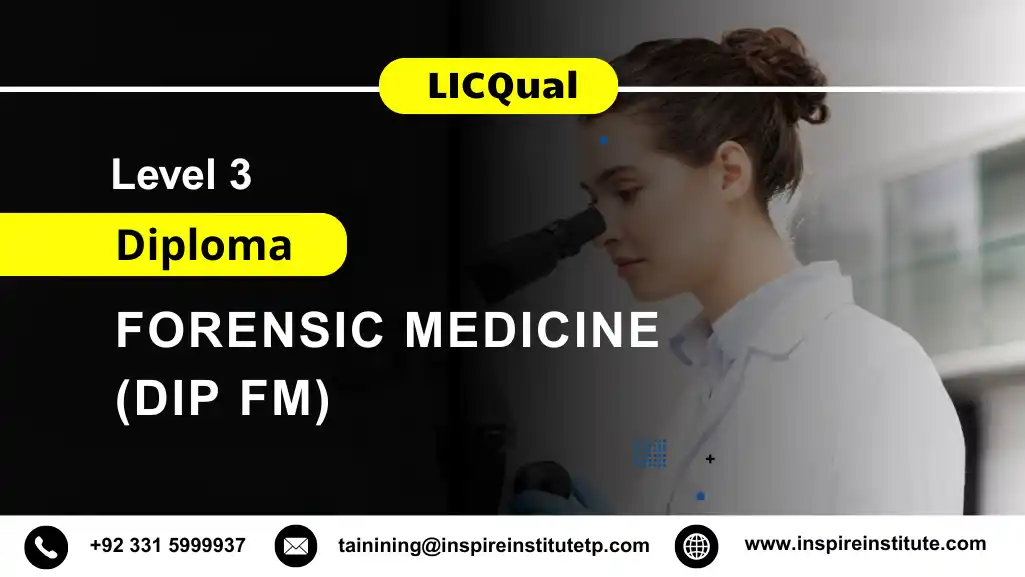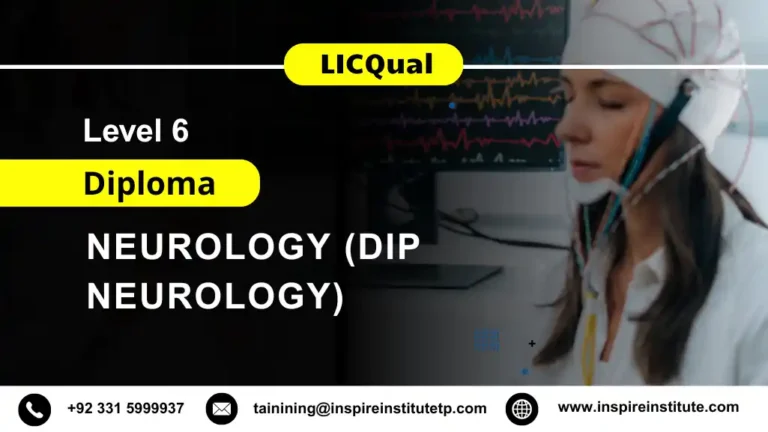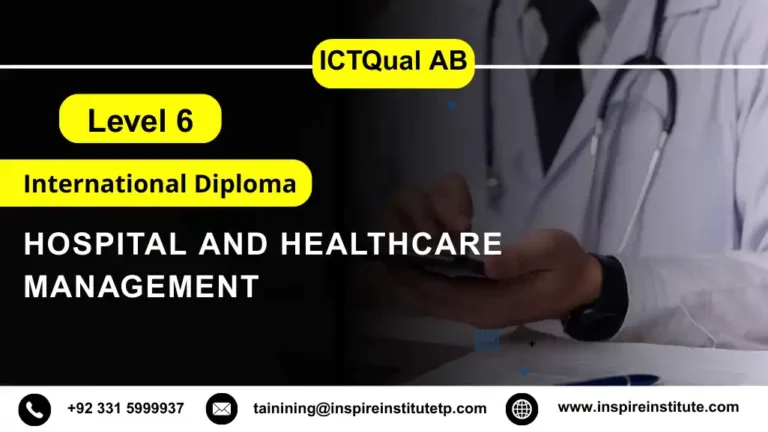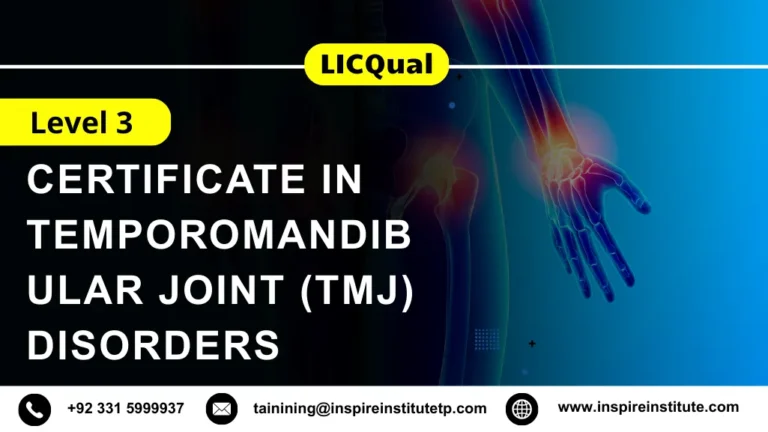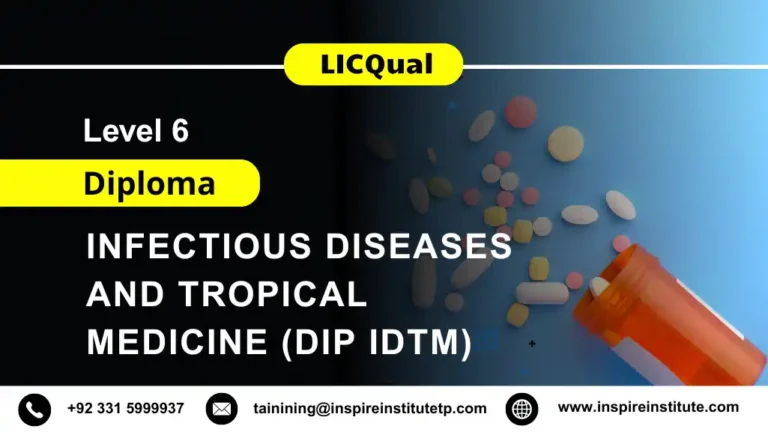LICQual Level 3 Diploma in Forensic Medicine (Dip FM)
The LICQual Level 3 Diploma in Forensic Medicine (Dip FM) is a UK-accredited programme designed for individuals seeking to develop specialized expertise in forensic and medico-legal investigations. Forensic medicine plays a critical role in modern healthcare and criminal justice systems, bridging the gap between medicine and law. This diploma equips learners with the knowledge and practical skills required to understand injury assessment, post-mortem examinations, and medico-legal reporting, making it an essential qualification for aspiring forensic practitioners, medical students, and allied professionals.
This course provides a comprehensive understanding of forensic medicine principles, including human anatomy, pathology, and clinical examination techniques. Learners explore the assessment of injuries, identification of trauma patterns, and evaluation of cause and manner of death. The curriculum also covers legal frameworks, ethical considerations, and documentation standards, ensuring graduates are prepared to operate effectively in legal and medical settings.
Learners will gain practical skills in evidence collection, medico-legal reporting, and courtroom procedures. The programme emphasizes accurate documentation, analytical reasoning, and critical thinking in medico-legal investigations. By combining theoretical knowledge with applied learning, participants can confidently support criminal investigations, legal proceedings, and healthcare assessments.
The LICQual Level 3 Diploma in Forensic Medicine (Dip FM) is a career-ready qualification that enhances employability in hospitals, forensic laboratories, law enforcement agencies, and legal consultancy services. It also serves as a solid foundation for further advanced studies in forensic science, pathology, and criminal investigation programs.
The flexible, assignment-based structure of the programme allows learners to balance professional responsibilities while advancing academically. Students benefit from structured learning resources, practical case studies, and guidance on applying forensic principles in real-world scenarios. This approach ensures that graduates can implement their skills effectively in professional contexts.
By completing this diploma, learners not only strengthen their expertise in forensic medicine but also develop professional values such as ethics, confidentiality, and accuracy in medico-legal practice. The LICQual Level 3 Diploma in Forensic Medicine (Dip FM) empowers aspiring forensic professionals to contribute meaningfully to criminal justice, healthcare, and legal investigations, making a significant impact in both community and professional settings.
Why Choose this Qualification
The LICQual Level 3 Diploma in Forensic Medicine (Dip FM) is a specialized qualification designed to build essential knowledge and skills for those aspiring to work in the field of forensic and medico-legal investigations. Forensic medicine is a critical discipline that bridges healthcare and legal systems, focusing on the assessment of injuries, post-mortem analysis, and medico-legal reporting. Choosing this diploma not only strengthens your academic and professional foundation but also prepares you for a meaningful career where you can make a significant impact in criminal justice and healthcare investigations.
Key Reasons to Choose this Qualification
Comprehensive Understanding of Forensic Medicine
- Gain an in-depth foundation in human anatomy, pathology, and clinical examination relevant to forensic investigations.
- Learn the assessment of injuries, trauma patterns, and identification of cause and manner of death.
- Study medico-legal procedures, documentation standards, and ethical practices in forensic medicine.
- Understand the role of forensic medicine in legal proceedings and criminal investigations.
Practical Skills for Real-World Forensic Applications
- Acquire hands-on knowledge to conduct medico-legal examinations and collect evidence accurately.
- Learn essential techniques for post-mortem analysis, injury documentation, and crime scene assessment.
- Apply evidence-based practices in preparing medico-legal reports for courts and legal authorities.
- Develop problem-solving abilities through case studies and simulated forensic scenarios.
Career-Ready Qualification
- Enhance employability with recognized skills in forensic assessment and medico-legal reporting.
- Prepare for roles in hospitals, forensic laboratories, law enforcement, and legal consultancy services.
- Build a strong foundation for progressing into advanced forensic science, pathology, or criminology studies.
- Demonstrate professional competence through an accredited international qualification.
Strong Focus on Ethics and Professional Practice
- Develop communication and professional skills for interacting with legal professionals and patients.
- Learn to apply ethical decision-making, confidentiality, and accuracy in forensic investigations.
- Understand cultural, social, and legal considerations in medico-legal practice.
- Gain confidence in supporting judicial processes and healthcare assessments with integrity.
Internationally Recognized Qualification
- Earn a qualification awarded by LICQual, known for its high academic standards.
- Open opportunities for global careers in forensic medicine, law enforcement, and medico-legal consultancy.
- Gain credibility and recognition among employers, peers, and professional bodies worldwide.
- Use this diploma as a stepping stone for advanced certifications in forensic and medical-legal fields.
Flexible and Structured Learning
- Benefit from a structured curriculum designed for progressive learning and professional development.
- Learn at your own pace with assignment-based assessments that test understanding.
- Access study materials and resources tailored to forensic medicine principles.
- Balance study with professional or personal commitments while advancing your expertise.
The LICQual Level 3 Diploma in Forensic Medicine (Dip FM) is more than just an academic qualification; it is a pathway to a rewarding career in forensic science and medico-legal investigations. With its blend of theoretical knowledge, practical skills, ethical training, and global recognition, this diploma empowers learners to make a significant contribution to both healthcare and legal systems worldwide.
Course Overview
LICQual UK Awarding Body
Average Completion Time:
4-12 Months
Study Units: 6 Units
Evidence & Assignment Based
Mandatory Units
Who Should Take This Course
The LICQual Level 3 Diploma in Forensic Medicine (Dip FM) is a specialized qualification designed for individuals who are passionate about forensic science, medico-legal investigations, and the application of medical knowledge in legal contexts. Forensic medicine is a vital field that bridges healthcare and the legal system, requiring both technical expertise and ethical practice. This diploma provides the skills and knowledge necessary for learners to enter forensic and medico-legal professions or advance to higher-level studies, making it a suitable choice for a wide range of learners.
This Course is Suitable For
Aspiring Forensic Healthcare Professionals
Build a strong understanding of human anatomy, pathology, and medico-legal principles.
Learn to assess injuries, document trauma, and identify causes of death accurately.
Develop skills to conduct forensic examinations and prepare professional reports.
Gain confidence in applying forensic medical knowledge in real-world legal and healthcare settings.
Nursing and Healthcare Assistants
Enhance knowledge in patient assessment, injury analysis, and medico-legal procedures.
Improve practical skills in handling evidence, documenting findings, and supporting investigations.
Strengthen communication techniques with legal authorities and multidisciplinary teams.
Acquire internationally recognized skills to advance within forensic and healthcare careers.
Medical Students and Early Career Practitioners
Use this diploma as a foundation for further studies in forensic medicine, pathology, or criminology.
Gain early exposure to medico-legal practices, professional standards, and ethical responsibilities.
Build the ability to apply evidence-based medicine in forensic assessments.
Develop critical problem-solving and decision-making skills in simulated and real forensic scenarios.
Allied Health Professionals
Strengthen forensic knowledge to support law enforcement and legal investigations.
Learn approaches for injury analysis, post-mortem examination, and legal documentation.
Improve patient care delivery and safety within medico-legal contexts.
Gain skills that complement existing healthcare qualifications and roles.
Individuals Seeking a Career Change into Forensic Medicine
Begin a professional journey in forensic and medico-legal fields with a recognized qualification.
Gain specialized knowledge in forensic assessments without needing prior experience in law or medicine.
Acquire transferable skills applicable to hospitals, forensic labs, and law enforcement agencies.
Build confidence to progress into advanced forensic education and professional roles.
International Learners Aiming for Global Forensic Careers
Earn a globally recognized diploma that enhances employability in forensic medicine worldwide.
Gain knowledge and skills aligned with international forensic and medico-legal standards.
Strengthen professional profiles for roles in hospitals, forensic units, and legal consultancy abroad.
Open pathways for higher education and advanced forensic studies globally.
The LICQual Level 3 Diploma in Forensic Medicine (Dip FM) is ideal for anyone committed to applying medical expertise in legal and investigative contexts. Whether you are an aspiring forensic practitioner, a healthcare professional, or someone seeking a career change, this qualification provides the foundation, skills, and recognition needed to excel in forensic medicine. By choosing this course, learners position themselves for both career growth and the opportunity to make a meaningful impact in medico-legal investigations.
Course Benefits
The LICQual Level 3 Diploma in Forensic Medicine (Dip FM) provides significant benefits for individuals seeking to build expertise in forensic medicine, medico-legal procedures, and criminal investigation practices. By combining essential theoretical knowledge with practical applications, this diploma equips learners to support forensic investigations, document evidence accurately, and apply medico-legal principles effectively. Designed as a flexible, assignment-based programme, it ensures professional development while maintaining academic excellence and relevance in today’s forensic and legal sectors.
Key Benefits of the Course:
- Specialist Knowledge: Gain a solid foundation in forensic medicine, including forensic pathology, injury analysis, crime scene procedures, and medico-legal principles. Learners explore evidence collection, post-mortem examination techniques, legal documentation, and ethical practices, preparing them to make informed and evidence-based decisions in forensic investigations.
- Practical Application: Develop practical skills in analyzing injuries, documenting trauma, and supporting legal investigations. Learners gain competence in handling forensic evidence, conducting post-mortem assessments, and applying best practices in hospitals, forensic laboratories, and investigative settings. The programme ensures graduates can apply theory directly to real-world forensic scenarios.
- Recognised Qualification: Earn a UK-accredited diploma that validates advanced knowledge in forensic medicine and strengthens professional credibility. This recognition ensures alignment with international forensic and medico-legal standards, making the qualification valuable for careers in hospitals, forensic units, law enforcement agencies, and educational institutions worldwide.
- Flexible Learning Pathway: Benefit from an assignment-based study model that allows learners to continue professional or personal responsibilities while advancing academically. This flexible approach makes the LICQual Level 3 Diploma in Forensic Medicine (Dip FM) ideal for healthcare professionals, legal practitioners, law enforcement personnel, and career changers seeking a structured yet accessible programme.
- Evidence-Based Training: Explore the latest guidelines in forensic procedures, injury assessment, and medico-legal reporting, ensuring that learners can adopt safe, accurate, and effective approaches. Training emphasizes crime scene documentation, post-mortem techniques, and evidence-based practices that support both individual investigations and broader legal outcomes.
- Career Development: Expand career opportunities across forensic units, hospitals, legal departments, criminal investigation teams, and international medico-legal organizations. The diploma opens pathways into roles in forensic support, medico-legal services, forensic nursing, and allied forensic professions, as well as further advanced studies in forensic science, pathology, and legal medicine.
- Enhanced Forensic Practice: Contribute to accurate investigations, ethical medico-legal processes, and justice delivery. Learners acquire the skills to support law enforcement, ensure legal compliance, and manage forensic cases effectively, ultimately improving public safety and judicial outcomes.
- Professional Growth: Strengthen analytical, decision-making, and communication skills needed to interact effectively with legal authorities, multidisciplinary teams, and the public. The course also builds professional values such as ethics, integrity, and interdisciplinary collaboration, preparing learners to play a crucial role in forensic medicine delivery.
The LICQual Level 3 Diploma in Forensic Medicine (Dip FM) equips learners with vital knowledge, practical competence, and a UK-recognised qualification. It empowers healthcare and forensic professionals, aspiring practitioners, and career changers to contribute effectively to medico-legal investigations, public safety, and the legal system while advancing their careers in the rewarding and impactful field of forensic medicine.
Eligibility Criteria
The LICQual Level 3 Diploma in Forensic Medicine (Dip FM) is a UK-accredited programme designed for aspiring healthcare professionals, legal practitioners, law enforcement personnel, and forensic investigators who wish to develop a strong foundation in forensic medicine, medico-legal procedures, and criminal investigation practices. This assignment-based qualification combines essential theoretical knowledge with practical applications, making it ideal for medical students, forensic nurses, allied health professionals, and individuals looking to specialize in forensic and medico-legal work. By meeting the entry requirements, learners ensure they are fully prepared to succeed in the programme and apply their knowledge effectively in hospitals, forensic laboratories, law enforcement agencies, and investigative settings.
Educational Background:
Applicants should hold a recognised healthcare, science, or law-related qualification such as a diploma in healthcare practice, nursing, forensic science, or an equivalent qualification. Candidates with Level 2 or Level 3 qualifications in healthcare, criminal justice, forensic science, or related fields may also be considered. Equivalent international qualifications will be reviewed on a case-by-case basis to ensure they meet the suitability standards for the programme.
Professional Experience:
While previous experience in forensic medicine, healthcare, or law enforcement is beneficial, it is not strictly mandatory. A minimum of one year of healthcare, forensic, or investigative experience is recommended. Applicants with exposure to medico-legal documentation, clinical assistance, or crime scene support will find the course particularly valuable, though motivated individuals without direct experience are also encouraged to apply.
Age Requirement:
Learners must be at least 18 years of age at the time of enrolment, ensuring they possess the maturity, responsibility, and commitment required for training in forensic medicine. This requirement ensures that candidates can engage with both the academic and practical aspects of the qualification effectively.
Language Proficiency:
Since the programme is delivered in English, learners should demonstrate strong reading, writing, and communication skills. A minimum IELTS score of 6.0 or an equivalent qualification is recommended for non-native English speakers. This ensures that learners can complete assignments, engage with course resources, and interact professionally in academic, legal, and forensic contexts.
Technical Requirements:
Applicants should have access to a computer or laptop with a stable internet connection. Basic IT skills are necessary to manage online learning platforms, conduct research, and submit assignments digitally. Familiarity with using word processing tools and accessing digital study resources will support a smoother learning experience.
Required Documents:
Submission of a valid ID or passport, proof of educational qualifications, and evidence of any forensic, healthcare, or related professional experience (if applicable) is required for registration. Applicants presenting international qualifications may be asked to provide additional documentation for verification.
The Qualification Process
LICQual Level 3 Diploma in Forensic Medicine (Dip FM) follows a structured pathway to ensure learners gain comprehensive knowledge, practical skills, and professional competence in community oral healthcare.
Step 1: Self-Assessment
Learners review the entry requirements to confirm eligibility. Candidates with a background in dentistry, oral health, or public health are encouraged to apply.
Step 2: Registration
Complete the registration process by submitting required documents such as proof of qualifications, a valid ID, and payment of enrollment fees.
Step 3: Induction
An induction session is conducted to:
- Verify learner eligibility and documentation.
- Introduce study materials, learning outcomes, and assessment procedures.
Step 4: Learning and Evidence Submission
Learners complete assignments, case studies, and practical exercises demonstrating competence in public health dentistry, community oral health assessment, preventive strategies, and program planning.
Step 5: Feedback and Revision
Assessors review submitted evidence and provide constructive feedback. Learners can revise and resubmit work to meet all required standards.
Step 6: Competence Validation
Final submissions are evaluated to confirm that learners have met all theoretical and practical learning outcomes.
Step 7: Internal Quality Assurance (IQA)
The IQA team reviews the assessment process to ensure accuracy, fairness, and compliance with international standards.
Step 8: External Verification (EQA)
External verifiers validate the authenticity and quality of learner achievements.
Step 9: Certification
Upon successful verification, learners are awarded LICQual Level 3 Diploma in Forensic Medicine (Dip FM) , demonstrating advanced proficiency in community oral healthcare and preparing them for professional growth in dental public health, preventive dentistry, and healthcare policy.

